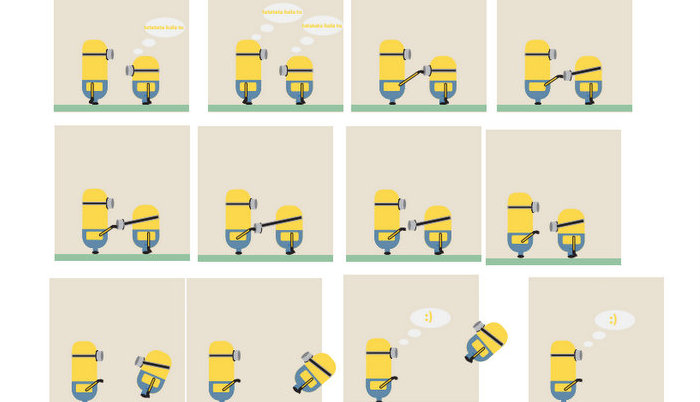Alen Karakelle
I am
Alen. My classmates call me “Doctor of Love”. I can say that I
know almost everything about love. First of all, love has no age,
though most of the people say it has. I don't think that it has. I
mean, love has no age. For instance, friends “love” each other. I
said that I know almost everything, but I would like to talk to a
professional anyway. So, I interviewed with Psychologist Ece Babal.
I liked her answers. A friend of mine said, “I felt like the interview is about my situation.” However, it is not about my situation, since I already had my first love. I am waiting for my 5th or 6th one.
Dear parents, if your son or daughter is in puberty or about to be, please help them. Have respect to them, because they are going through hard times. I guess.
Thanks for reading my interview.
In your opinion, how does being in puberty feel like?
I think it is like chaos. It is full of new excitements, but it is also scary. There are changes in the body and feelings and the areas of interest also change. Children grow curious about different things. The way they socialize changes. They begin to have sexual interests. Some children get panicked, since they don't know how to deal with all that change. I can describe it as a sweet excitement accompanied by fear.
How does the body change with puberty?
There are many changes both in the bodies of girls and boys. In girls, breasts start to develop and there is weight gain on the hips. Hair grows in genital area, armpits and legs. Their waists get slimmer. They start ovulating and having period. In boys, testicles get wider. Hair grows in genital area, legs and face. Their voice changes. Sperm production starts.
How does a adolescent fall in love?
They fall in love like the adults does, but since its their first time, their feelings are more stronger both in the beginning and in the end of a relationship. There is intense excitement and enthusiasm toward the partner. Physically, they may have symptoms like fast heart rate, sweaty palms and blushing. Adolescents feel like their love will never end. Since its their first, they feel like it is the most important thing in their lives. First eye contact, first hug, first kiss... All of these are very important experiences. There is a disadvantage: they don't know how to deal with these feelings. They may feel like they will spend their life with their partners; thus, they suffer when they break up.
Why is there a notion called “puberty”?
Puberty is a transition phase between childhood and adulthood. An adolescent is neither a child nor an adult. They are different than children both physically and emotionally, but they don't yet develop the characteristic of adults. During puberty, teens get ready for adulthood physically, emotionally and socially. It is like the rehearsal of adulthood.
Is there an age limit to puberty?
In the past, the puberty was thought to end at 18, but now, the ending age is considered 21. However, recently, it has been said that it may end later. The reason is the fact that today people tend to start working at an older age. The puberty ends when the individual starts to take on responsibility and have more and more responsibilities. Nowadays, some of the university graduates further their education and continue to be dependent on their families financially and emotionally. Thus, those people may fail to proceed to adulthood. My personal opinion is this: when individuals start to separate themselves from their family both financially and emotionally, then the transition to adulthood starts. It is possible to see a 18-year-old adult, as well as it is possible to see a 25-year-old individual whose puberty hasn't ended yet.
How do adolescents go through pangs of love?
It is one of the greatest pains for adolescents. Adolescents experience love like adults do for the first time during their puberty. This first experience mostly get out of their control. They are inexperienced in love, which they deem endless. They may make some mistakes. Though there are exceptions, love affairs in puberty don't last long. When the relationship ends, adolescents experience heartbreaks and pangs of love. Intense feelings accompanied by frustration make them unhappy and desperate. It is important to know that adolescents may feel overwhelmed by these feelings. Just like in adulthood, such feelings may trigger depression in puberty. An adult has more endurance in the face of such sufferings compared to an adolescent. Saying, “This is nothing compared to what awaits you in future” to an adolescent is useless. Sympathizing would be more beneficial.
How should parents treat their children in puberty?
They should try to empathize and consider that they may fail to understand their children because of the age difference. When children reach to puberty, they tend to pull away from their families and get closer to their friends. In such a case, parents shouldn't take this change personally and accept it as a normal process. The children won't share everything with their parents and may choose their friends over their families. Social acceptance is one of the most important issues in puberty. The difficulties that an adolescent goes through shouldn't be underestimated or ignored; parents should try to understand the feelings of their children. It should be kept in mind that an issue that an adult might see as trivial may be a major problem for an adolescent. Also, the parents should be honest and open. The parent having the same sex with the child should talk to the child about sexuality and answer his/her questions about sexuality in accordance with the child's age. Parents should keep in mind that children are able to gather information about sexuality from anywhere. So, helping the children to have the right information is important. A healthy sexual development is only possible with an open communication with parents. Understanding the feelings of the adolescent, having sympathy to the ongoing changes, expressing support without violating the personal space and making the children ready for adulthood are the right attitudes, which would make the transition easier.





